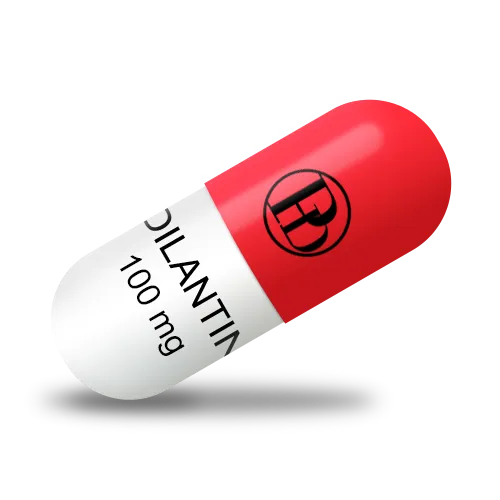Overview
Dilantin, generically referred to as phenytoin, is an anticonvulsant drug employed to manage seizures. It is highly effective for tonic-clonic (grand mal) and partial seizures. By moderating brain impulses that trigger seizures, Dilantin assists in seizure control. Offered in forms like oral capsules, chewable tablets, and injectables, it accommodates diverse patient requirements.
History of Development and Approval
Developed by Parke-Davis and launched in the 1930s, Dilantin earned FDA approval in 1953. As an early antiepileptic medication, it has been pivotal in epilepsy treatment and remains popular for its proven effectiveness and safety.
Key Benefits
- Seizure Management: Reduces seizure frequency and intensity.
- Diverse Forms: Available in oral and injectable options for varied needs.
- Extensive Experience: Backed by decades of clinical use and studies.
- Affordability: Often less expensive than newer alternatives.
Unique Properties
Dilantin distinguishes itself by stabilizing cell membranes and curbing seizure propagation. Its enduring efficacy and documented success position it as a fundamental therapy in epilepsy care.
Comparison with Similar Medications
Relative to other anticonvulsants, Dilantin provides:
- Proven Reliability: Strong history in seizure suppression.
- Form Variety: Includes extended-release for convenience.
- Economic Value: More budget-friendly than many recent drugs.
Safety and Tolerability
Dilantin is typically safe when used correctly. Common effects include dizziness, sleepiness, and gingival hyperplasia. Rare severe effects may encompass liver damage, hematologic issues, or skin reactions. Ongoing medical supervision is advised for safety.
Indications for Use
Dilantin is indicated for seizure disorders like:
- Tonic-Clonic Seizures: Controls widespread brain seizures.
- Partial Seizures: Addresses localized brain seizures.
- Status Epilepticus: Manages continuous seizures without consciousness recovery.
Dosage and Administration
Adults: Start at 100 mg thrice daily; maintenance 300–400 mg daily, adjusted per levels/response.
Children: Initial 5 mg/kg daily, divided; maintenance 4–8 mg/kg.
Elderly: Lower doses due to metabolic changes/sensitivity.
Timing: Consistent daily; extended-release once/twice.
Frequency: Divided for immediate; less for extended.
Food Impact: Minimal; with food reduces GI upset.
Mechanism of Action
Phenytoin stabilizes neurons by blocking sodium channels, limiting sodium entry during impulses and reducing excitability/seizure spread.
Composition
Active Ingredient: Phenytoin sodium, essential for anticonvulsant action.
Inactive Ingredients: Lactose, magnesium stearate, talc for formulation.
Side Effects
Common: Dizziness, drowsiness, gum growth, nausea.
Rare: Liver toxicity, blood disorders, severe rashes.
Serious: Stevens-Johnson syndrome, hematologic abnormalities require immediate attention.
Prevention of Side Effects
Regular blood tests for levels/toxicity; good oral hygiene prevents gum issues. Report unusual symptoms promptly.
Contraindications
Avoid in hypersensitivity, certain heart conditions, or with specific drugs increasing risks.
Warnings and Precautions
Monitor levels, liver function, blood counts. Caution in liver/kidney disease, pregnancy.
Drug Interactions
Interacts with antibiotics, antifungals, anticoagulants altering efficacy/risks. Disclose all medications.
Overdose
Symptoms: nausea, vomiting, confusion, seizures. Seek emergency help; supportive treatment needed.
Pharmacokinetics
Absorption: Variable oral; peak 1.5–3 hours.
Distribution: Protein-bound, crosses blood-brain barrier.
Metabolism: Liver to inactive metabolites.
Elimination: Urine; half-life 22 hours average.
Dosage Forms
Capsules (30–100 mg), chewables (50 mg), injectables. Flexible for preferences/needs.
Pregnancy and Breastfeeding
Use if benefits outweigh risks; potential fetal harm. Excreted in milk; consult provider.
Storage
Store at 20°C–25°C (68°F–77°F), dry, light-protected, away from children. Dispose expired properly.
Clinical Evidence
Trials confirm Dilantin reduces seizure frequency/severity versus placebo. Established choice for epilepsy.
Conclusion
Dilantin is reliable for seizure control, offering benefits like reduced frequency and flexible forms. Follow guidance, monitor, healthy lifestyle for optimal outcomes.




